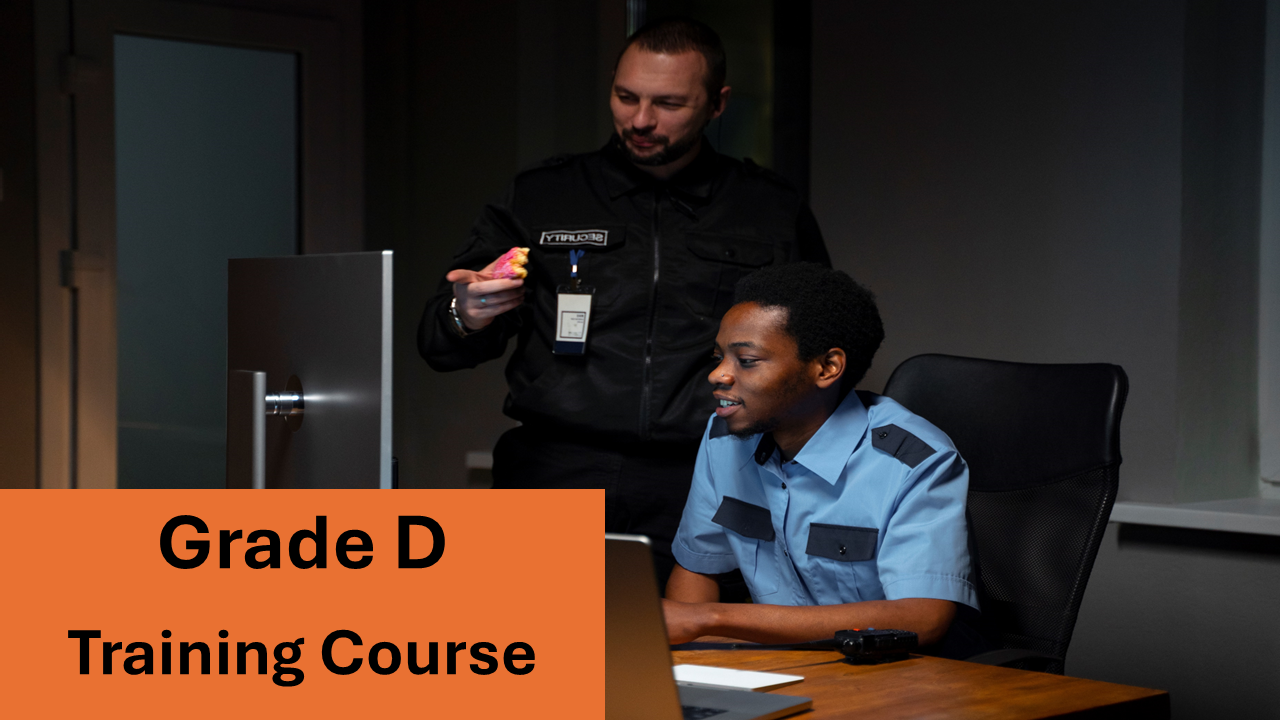Learn How To:
Build and maintain professional public relations as a security officer.
Apply basic fire-fighting techniques and handle fire emergencies.
Communicate effectively using radios and telephones with proper procedures.
Understand and apply legal aspects related to search, arrest, and unauthorized acts.
Perform professional access control for people, vehicles, and goods.
Recognize and report unsafe acts and conditions in the workplace.
Keep accurate records using pocket books and occurrence books.
Conduct lawful and effective searches of persons, vehicles, and property.
Who This Course Is For:
Security officers preparing for Grade D certification.
Companies seeking to upskill staff into supervisory or advanced guarding roles.
Individuals progressing from Grade E and aiming for career growth in security.
Anyone interested in developing strong professional, legal, and operational security skills.
What Will You Learn?
The role and responsibilities of a Grade D security officer.
Effective public relations and communication with clients and the public.
Fire safety: types of fires, extinguishers, and emergency procedures.
Proper use of radio and telephone communication, including phonetic alphabets.
Legal knowledge on arrest, search procedures, and unauthorized use of property.
Access control methods, including visitor management and vehicle checks.
Occupational safety: causes of accidents, unsafe acts, and prevention.
Accurate reporting and record-keeping in pocket books and occurrence books.
Professional search techniques for people, vehicles, and containers under the CPA.
Material Includes:
8 Modules with structured lessons, quizzes, and scenario-based learning.
Downloadable reference guides and training resources.
Real-world security case studies and practical examples.
Certificate of completion (Grade D Security Training).
Access on mobile, tablet, and desktop.
Requirements:
Completion of Grade E Security Officer training (or equivalent).
Must be 18 years or older and able to communicate in English.
Willingness to participate in both theoretical and scenario-based exercises.
Commitment to professional conduct, discipline, and teamwork.
